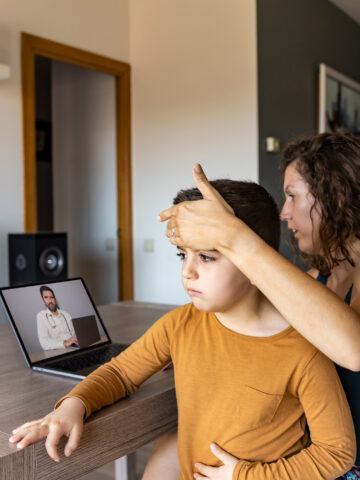Flu season is here. We spoke to Dr. Katherine Williamson, a CHOC pediatrician, about how to keep your kids safe from the flu.
#1 Get the flu shot
Make sure that each member of your family gets the flu shot every year. The Centers for Disease Control recommends annual influenza vaccinations for everyone age 6 months and older. Vaccinations are especially important for those at increased risk for flu complications, including pregnant women. Encourage family members and caregivers around your child to get the flu shot. Of the more than 170 pediatric deaths from the flu during the 2017-2018 influenza season, 80 percent of those did not receive a flu shot.
#2 Practice proper hand washing
Remind your child that we always wash our hands for at least 15 seconds (always with soap, and always with vigorous rubbing) after using the restroom, before and after eating, after playing outside, and after sneezing, coughing or touching your face. Aside from getting the flu shot every year, proper hand washing is the best way to prevent the spread of illnesses including the flu.
#3 Stay away from people who have a fever
Ask friends, family, or caregivers who have had a fever or chills within the past 24 hours to stay away from your child. Do not send your child to school or daycare for at least 24 hours after they experience a fever or chills.
#4 Teach proper cough etiquette
Teach your child to cover his nose and mouth when he coughs. Parents should model good behavior.
#5 The importance of sleep
Sleep! The best immune system boost you can give your child is good sleep at any age. The right amount of sleep for your child is however much sleep he/she needs when he/she can wake up naturally without an alarm clock or mommy clock waking them up. For some kids, this is eight hours, while others need more than ten.
#6 Healthy eating
Healthy vegetables, fruit, and protein. You are what you eat! Eating processed sugar-filled foods can decrease your immunity by inhibiting your body to fight against diseases. Offer your kids healthy foods without the option of choosing the less healthy snack. They will eat when they are hungry, and when they are hungry, make sure it is healthy options that are available.
For more health and wellness resources from the pediatric experts at CHOC, sign up for the Kids Health newsletter.
Find a CHOC Primary Care Pediatrician
From babies to teens, pediatricians from CHOC’s Primary Care Network partner with parents to offer immunizations, sick visits, sports physicals and more.





